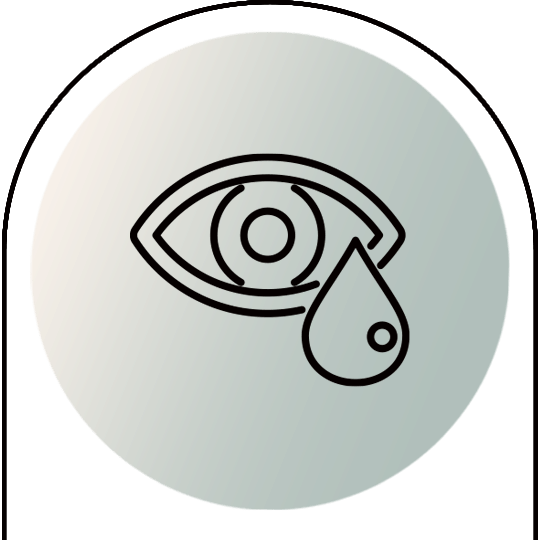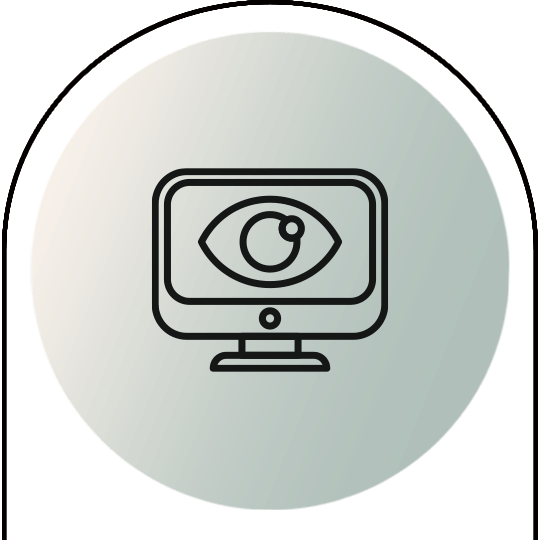Your Eye Health Matters
Regular eye exams are essential for monitoring and managing your eye health, no matter your age.
Without regular checkups, you may run a risk of developing an eye disease that could permanently affect your vision.
Early diagnosis is crucial for preventing long-term vision impairment, so it’s important to visit us for an eye exam regularly. Taking proactive steps today could help protect your sight for years to come. Start by booking an appointment today.
Book Appointment24/7 Emergency Eye Care Support
Adirondack Eye Care Center is proud to offer 24/7 emergency eye care.
The emergencies we can help address include:
- Chemical exposure
- Blunt trauma
- Foreign objects in eyes
If you’re experiencing an eye emergency, please call us immediately—we can provide strategies to help preserve your sight.
Common Eye Diseases & Conditions
Some eye diseases can develop for years without showing noticeable symptoms. Our mission is to detect these issues early so we can personalize a strategy to help protect your eyes and vision.
Some of the most common eye diseases adults develop include diabetic eye disease, age-related macular degeneration, and glaucoma.
Diabetic Eye Disease
Diabetic retinopathy is an eye disease that occurs when high blood sugar levels damage the blood vessels in the retina. This can lead to vision loss and blindness when not treated properly.
People with diabetes may be at a higher risk of developing this disease and could experience blurry vision, floaters, and difficulty seeing in dim light as a consequence of diabetic retinopathy.
Early detection is key for preserving long-term vision, so it’s important for people with diabetes to get regular eye exams.
Age-Related Macular Degeneration
Age-related macular degeneration (AMD) is a leading cause of vision loss for older adults. It is caused by an accumulation of proteins that damage the macula, which is responsible for central vision.
The main symptoms of AMD include blurred or distorted central vision, which can make tasks like reading difficult.
Glaucoma
Glaucoma is a group of eye diseases that cause damage to the optic nerve, leading to gradual vision loss. Glaucoma often develops slowly and without symptoms, meaning it can go undetected until significant vision loss has already occurred.
Regular eye exams are important for early detection and treatment of glaucoma in order to prevent permanent vision damage.
Glaucoma Risk Factors
Glaucoma risk factors may include:
- A family history of glaucoma
- Extreme refractive errors
- Past eye injury or trauma
- Use of certain medications
- Heart disease, diabetes, or high blood pressure
Eye Problems for Children
Children can experience eye conditions, too.
We check for these issues during every eye exam and can offer several strategies to manage your child’s symptoms and help keep their vision clear and comfortable.
Learn more about our approach on our Children’s Eye Exams page.
Myopia
Myopia, or nearsightedness, is a common vision condition in which distant objects appear blurred while close objects stay clear. It occurs when light entering the eye focuses at a point in front of the retina instead of directly on it.
Regular eye exams can help identify myopia early and stop its progression.
Amblyopia
Amblyopia, also known as lazy eye, is a common children’s vision issue that affects the alignment of the eyes, sometimes leading to vision problems in the future.
Regular eye exams can help detect amblyopia early and allow for proper treatment with eyeglasses, patching therapy, or surgery.
Diagnosing Eye Diseases
Our tech-focused approach helps us take a deep dive into the intricacies of your eye health, giving us the information we need to protect and preserve your vision.
Depending on our findings, we can recommend several strategies to help manage your eye health. The first step, though, is to book an eye exam with us.
Optos Retinal Imaging
Optos retinal imaging is a technique we use to observe your retina, the area at the back of your eye responsible for turning light into sight.
This technology can help us detect issues like AMD, diabetic eye disease, and glaucoma.
Optical Coherence Tomography
Optical coherence tomography (OCT) is a technology that can provide us with cross-sectional images of your retina—similar to an ultrasound.
Like retinal imaging, this technology can help us detect glaucoma, AMD, and diabetic eye disease.
Visual Field Analysis
Visual field analysis can help detect blind spots in your vision caused by eye diseases like glaucoma, which can affect your peripheral sight.
Book an Eye Exam Today
Get help managing your eye health today. Book your appointment, meet our team, and see the difference we can make!
Book AppointmentVisit Our Location

Our Address
- 151 Main St #1
- Boonville, NY 13309
Contact Information
- Phone: 315-942-2122
- Email: [email protected]
Our Hours
- Monday: 9AM–1PM, 2PM–5PM
- Tuesday: 11AM–3PM, 4PM–7PM
- Wednesday: 9AM–1PM, 2PM–5PM
- Thursday: 9AM–1PM, 2PM–5PM
- Friday: 9AM–1PM, 2PM–5PM
- Saturday: Closed
- Sunday: Closed

Our Brands














